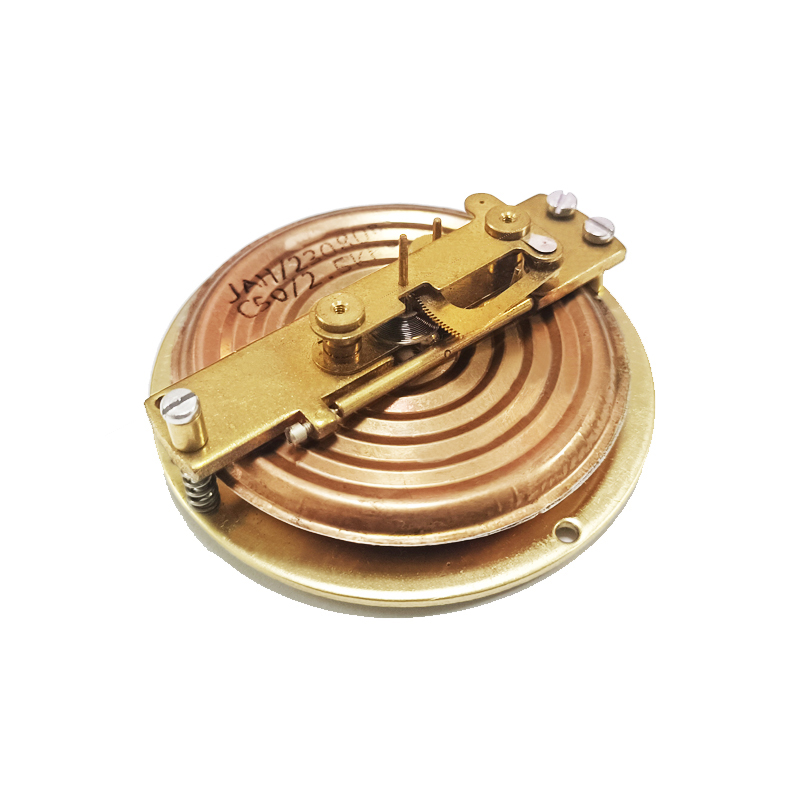
Dic . 12, 2024 15:19 Back to list
Exploring the Functionality of Diaphragm Sensing Pressure Gauges in Industrial Applications
Understanding Diaphragm Sensing Pressure Gauges A Comprehensive Overview
Pressure measurement is a critical aspect in various industries, ranging from manufacturing to pharmaceuticals. Among the various types of pressure gauges available, diaphragm sensing pressure gauges have become increasingly popular due to their reliability and accuracy. This article delves into the fundamental principles behind diaphragm sensing pressure gauges, their applications, advantages, and considerations for effective use.
What Are Diaphragm Sensing Pressure Gauges?
Diaphragm sensing pressure gauges utilize a flexible diaphragm to measure pressure changes. The diaphragm is a thin, elastic membrane that deflects when pressure is applied. This deflection is translated into a measurable output, usually through a mechanical or electronic system. The design of the diaphragm allows for the measurement of both absolute and gauge pressure, making it suitable for a wide range of applications.
Working Principle
The working principle of a diaphragm pressure gauge is relatively straightforward. When pressure is applied to one side of the diaphragm, it bends or deflects. This mechanical movement is then converted into a rotational movement of a pointer on a dial (in analog gauges) or a digital reading (in digital gauges). The extent of the diaphragm’s deflection is proportional to the pressure applied, allowing for accurate measurements to be displayed.
Applications
Diaphragm sensing pressure gauges are versatile instruments used in various sectors
1. Chemical Processing These gauges can handle corrosive fluids, especially when constructed from suitable materials like stainless steel or specialized alloys. 2. Oil and Gas In exploration and extraction, accurate pressure measurements are crucial for ensuring safety and efficiency. 3. Utilities Water and wastewater treatment facilities rely on these gauges to monitor pressure in their systems, helping to prevent failures and leaks.
4. Pharmaceuticals Precise pressure measurement is essential in maintaining the integrity of products, especially in sterile environments.
jah diaphragm sensing pressure gauges

Advantages
The popularity of diaphragm pressure gauges can be attributed to several advantages
- High Accuracy Diaphragm gauges provide precise readings, crucial for process control and safety. - Wide Measurement Range They can measure low to high pressures, catering to diverse applications. - Durability Constructed from robust materials, diaphragm gauges can withstand harsh environments, including exposure to chemicals and temperature variations. - Compact Design Their small size makes them ideal for applications with limited space. - Low Maintenance With fewer moving parts than mechanical gauges, diaphragm sensing gauges typically require less maintenance, reducing downtime.
Considerations for Use
While diaphragm sensing pressure gauges offer many benefits, certain considerations are essential to ensure optimal performance
1. Material Selection The choice of diaphragm material is critical, particularly in harsh environments. Factors such as corrosion resistance and temperature tolerance should guide material selection. 2. Calibration Regular calibration is necessary to maintain accuracy. Establishing a routine calibration schedule helps identify drifts in measurements over time.
3. Installation Proper installation can significantly impact the performance of the gauge. It is essential to follow manufacturer guidelines to avoid issues related to pressure spikes, vibration, or temperature fluctuations.
4. Environmental Considerations Understanding the environmental conditions – such as temperature, humidity, and the presence of corrosive substances – is vital for selecting the appropriate gauge.
Conclusion
Diaphragm sensing pressure gauges are indispensable tools in many industries, known for their accuracy, durability, and adaptability. By understanding their working principles, advantages, and the factors to consider for effective operation, users can ensure they harness the full potential of these devices. As industries continue to evolve, diaphragm sensing gauges will likely play an even more significant role in enhancing operational efficiency and safety.
-
High-Precision 5 Valve Manifold Differential Pressure Gauge Suppliers
NewsApr.29,2025
-
High-Precision Diaphragm Vacuum Pressure Gauges Manufacturers & Quotes
NewsApr.29,2025
-
Omega Differential Pressure Gauges High Accuracy & Durability
NewsApr.28,2025
-
Low Pressure Differential Pressure Gauges Precision Solutions & Quotes
NewsApr.28,2025
-
Digital Diaphragm Pressure Gaauge Precision Measurement & OEM Quotes
NewsApr.28,2025
-
Differential Pressure Gauge China Price High-Accuracy & Best Quotes
NewsApr.28,2025
